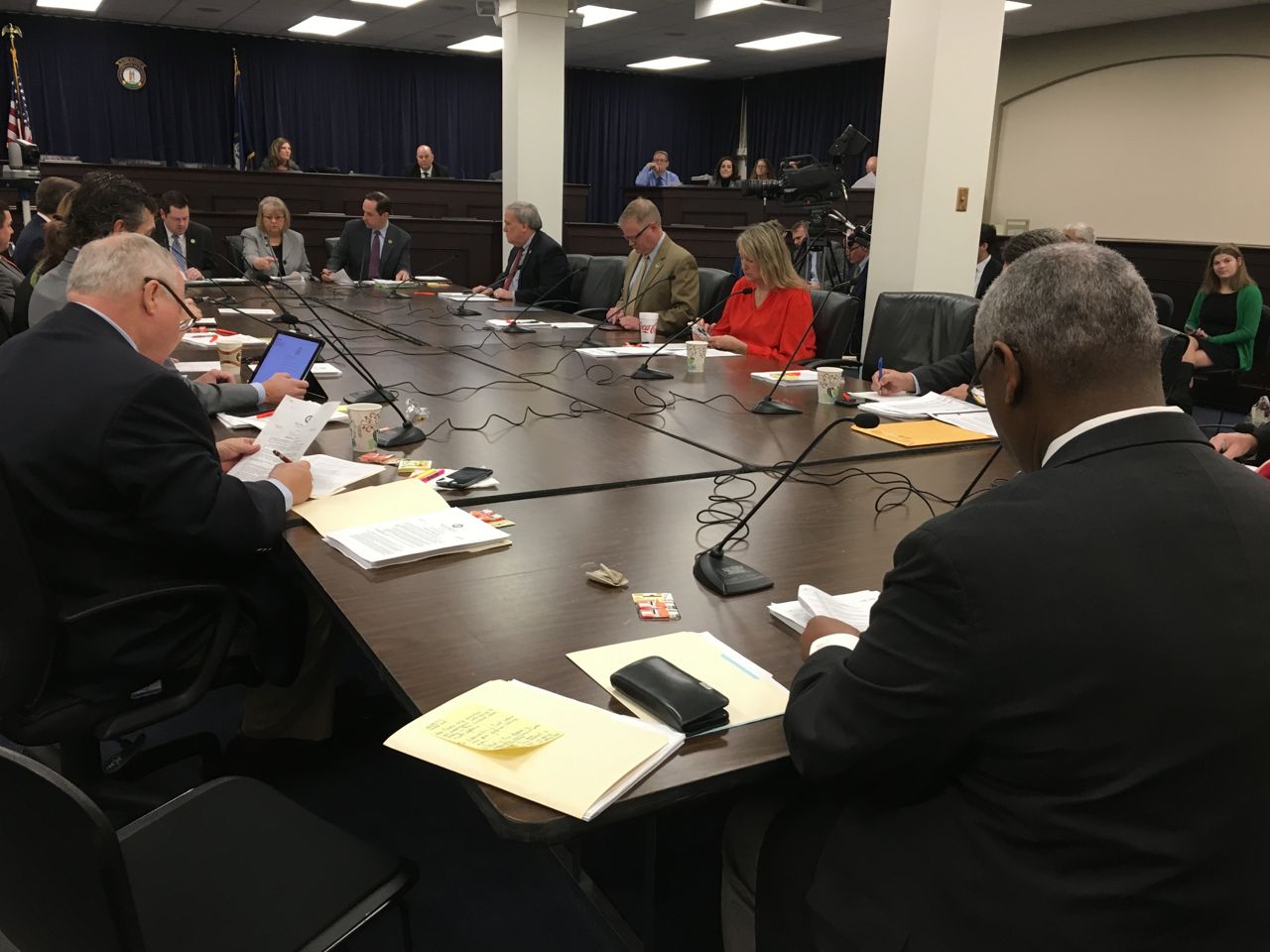FRANKFORT-Lawmakers have reached an agreement on the tax reform clean-up bill.
The Free Conference Committee on House Bill 354 signed off on their agreement Wednesday morning.
The bill will make several clean-ups to House Bill 487 passed during the 2018 General Assembly session, including removing a tax on admissions for non-profits, and taxing on gross gambling winnings, not net. But it includes several new measures as well.
Banks will be getting a tax break in the bill. The measure will move banks from having to pay a 13.25 percent Bank Franchise Tax to the 5 percent Corporation Income Tax. Lawmakers say this is to help small community banks stay in Kentucky—not to help large banks. Banks will have to be chartered in Kentucky to be affected by the change in the tax.
“This will hopefully make the Kentucky community banks competitive with our surrounding states I think is the intent of that,” said Senate Minority Leader Morgan McGarvey, R-Louisville. “This is not a bank franchise break to some huge corporate banks.”
The change would go in effect in 2021, so the $56 million fiscal impact won’t affect the biennium budget next year. Despite the financial strain the state is under, Conference Committee Chairman Sen. Chris McDaniel, R-Taylor Mill, says this necessary to keep the state competitive.
“As we’ve seen more and more acquisitions of Kentucky based banks most recently, the Wesbanco acquisition of United, we’re really beginning to see banks leaving the commonwealth for more competitive tax states,” he said. “We really have an issue where we are becoming an outlier in the banking space and need to make sure we don’ t loss anymore of those institutions and consequently the tax revenue that comes with them.”
Another tax break in the bill deals with low-income earners. Under the measure, families who saw their income tax rise as a result of last year’s tax bill will be able to get a tax credit.
“We want to make sure that no one saw a tax increase as a result of last year’s bill,” said Sen. McDaniel. “There was a very small population of folks who hovered in that 4.8 percent, 4.6 percent range that were negatively impacted. It was unintentional so we are trying to get that correct.”
Families who qualify will vary depending on their family size, filing status, and other factors.
“You’re mainly going to find these people not at the poverty level, just slightly above,” said Sen. McDaniel. “The range is pretty broad based on family size, filing status things like that.”
But it will only last for two years as lawmakers determine how the credit works.
“There is an ongoing commitment to make sure we get it right, but the mechanism is very complex and that’s why need two years to make the adjustment,” McDaniel said.
What isn’t in the bill, is a provision providing scholarship tax credits. This was a concern of educators and superintendents throughout the commonwealth, and one of the reasons thousands of teachers called in sick. Sen. McDaniel says there simply wasn’t support among members to include the provision in the legislation.
Full implementation of HB 354 is estimated at around $105 million annually. McDaniel says despite the fiscal strain that will put on the commonwealth, it’s a balancing act.
“You cannot look at any given item in the absence of the whole. In the whole, we have to be fundamentally fair to individuals, which is what the low income tax credit is about,” he said. “You have to attract and retain good quality businesses, we have to be competitive with eight border states, so you have to design a tax code that allows for economic growth while at the same time bringing in enough revenue to handle the obligations you are talking about, while at the same time knowing we’ve increased an obligation to the pension fund by ensuring that we can deliver quality services.”
The full General Assembly will approve or disagree with the committee changes on floor Wednesday.



